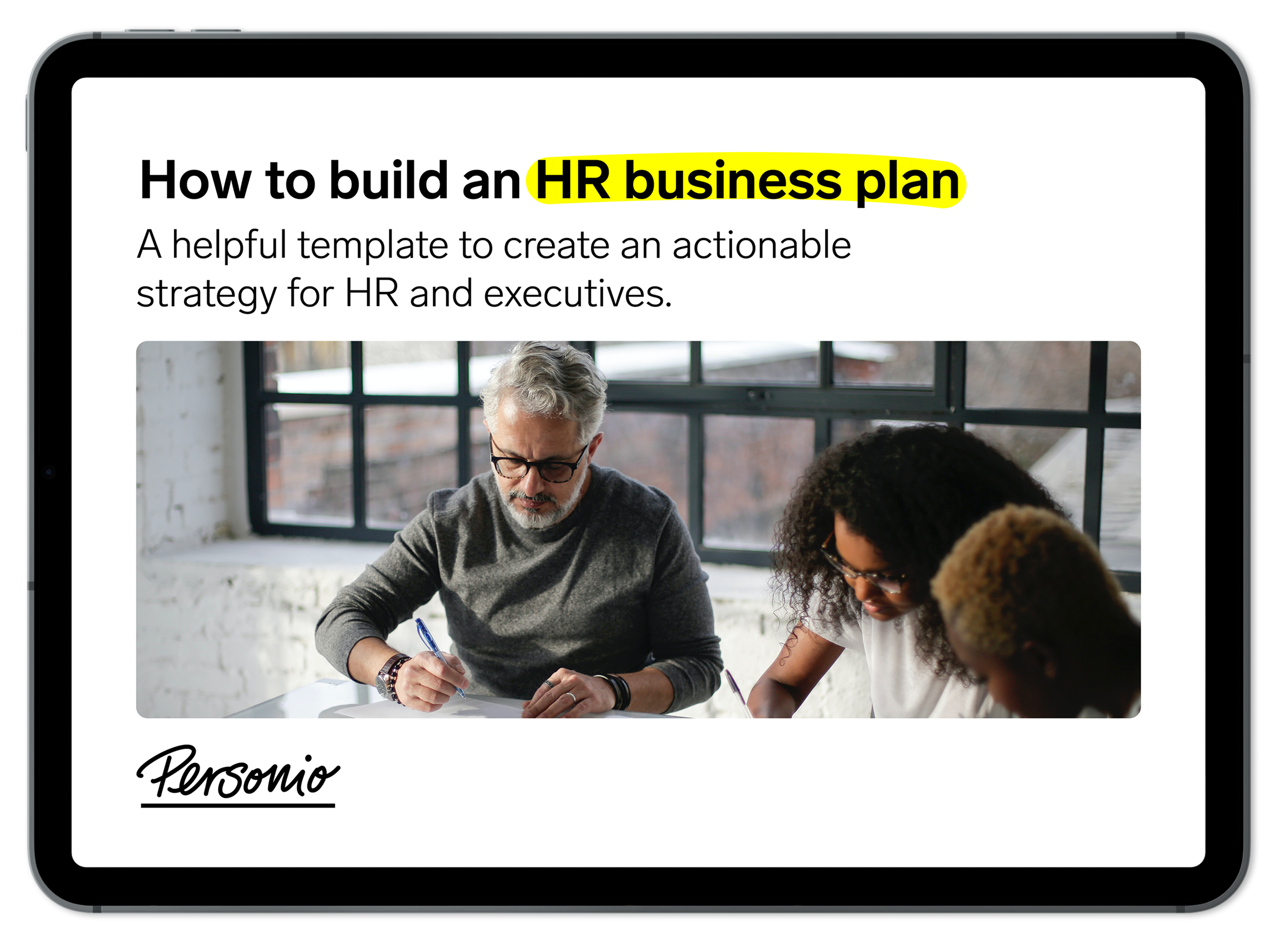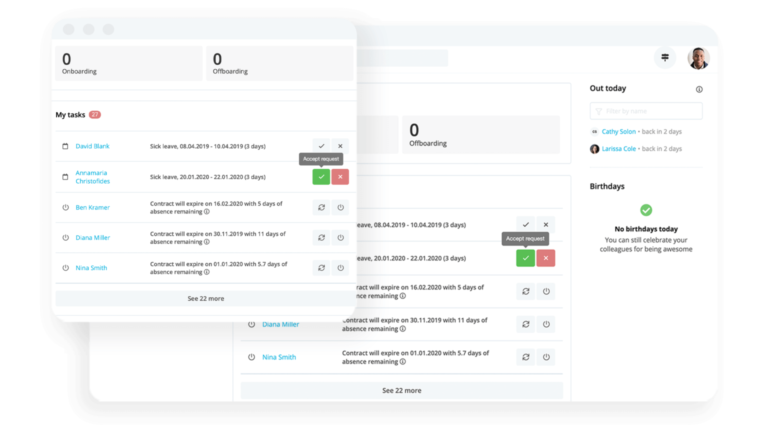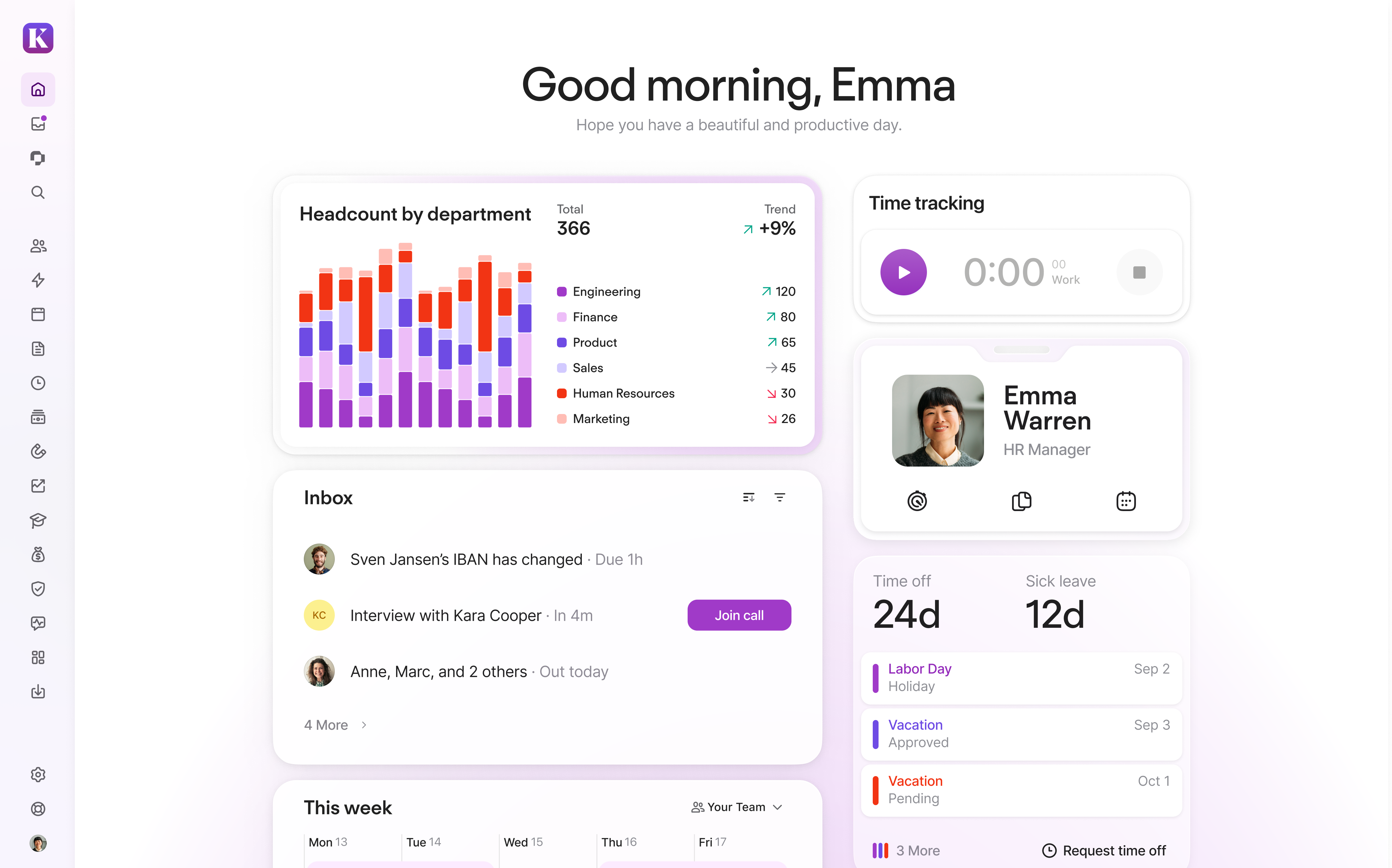HR audit checklist: Run an easier HR audit

What is an HR audit? As employees come in and out of the business, and as the total size of the workforce grows, it becomes increasingly important to audit current policies and procedures to ensure they are legally compliant and consistent with company values.
This guide will outline the areas covered in an HR audit as well as its benefits and process. Read to the end for an extensive HR audit checklist to help you get started.
Key Facts:
Organisations conduct HR audits to review HR procedures, policies, documentation and systems and to identify areas of improvement.
HR audits can cover a number of areas which will differ by organisation, but some of the most common are compliance, policies, performance, competitiveness and departmental specifics.
Performing an HR audit requires organisations to set objectives and an audit plan, collect and analyse the relevant data, then identify the necessary changes and put them into practice.
What Is an HR Audit?
An HR audit is a process used to review an organisation’s HR processes, policies, systems and documentation, and to identify which areas are performing well and which may need improvement or updating. The audit also ensures compliance with the latest rules and regulations, and helps align HR programs with ongoing business objectives.
The Five Components of an HR Audit
An effective HR audit will be performed at least yearly and will cover a number of areas that fall under the human resources umbrella. The areas included in your organisation’s HR audit may differ, but most will include some or all of the following topics:
1. Compliance
Compliance is one of the most common areas analysed in an HR audit. It involves comparing actual HR practices to existing company policies as well as legislation and regulations, spotting discrepancies and identifying changes that need to be made to ensure compliance.
2. Best Practices & Policies
Every HR team will have its own set of best practices and policies in place, and the HR audit is the perfect time to review these. Teams should look at both current and upcoming policies to see if they are consistent with the organisation’s values and objectives and general industry best practices, as well as checking for compliance with applicable legal and regulatory requirements.
3. Performance
To audit performance, teams will need to track metrics that are connected to the organisation’s overall strategy and objectives. Each company will prioritise different performance measures, but it is key to continually collect quantifiable data on the HR function’s activities and how they support high-level business goals.
4. Competitiveness
An HR audit should take the time to analyse the competitiveness of the organisation, its compensation and benefits and its policies in comparison to other companies. The HR function is responsible for attracting and retaining talent, so it’s important to regularly check in on how it stacks up against the competition.
5. Function-Specific
The function-specific area of an HR audit takes a deeper look at each specific department, from payroll to benefits to People Ops and more.
Why are HR Audits So Important?
HR teams tend to be very busy, and it can be tempting to focus on daily tasks and skip projects with a long-term view. But even though it falls outside of the important daily to-do list, an HR audit can actually improve the efficiency of those daily processes and save the team precious time and resources.
Here are just a few of the key benefits of performing regular HR audits:
Builds on Processes and Policies That Impact the Employee Experience
Closely analysing the process and policies that impact your employees each day presents an opportunity to immediately improve their experience and ensure all employees have a safe place to work. Over time, this will not only empower workers and help with retention, but will also boost company culture and impact your ability to attract top talent.
Utilises Strategic HR Data
Most organisations build up significant troves of HR data over time, whether on performance, the recruitment funnel or the general People function. An HR audit will put that data to work by identifying opportunity areas, aligning actual performance with current policies and procedures and building strategic plans for the future.
Data by HR and payroll specialist SD Worx indicates that People teams in the UK are ahead of the curve on this compared to other countries in Europe. 74% of businesses in Europe reported having access to data on their HR and personnel costs, but that figure was 80% in the UK.
Help your HRBP to unlock executive buy-in

Download our HR Business Plan Template to help your HRBP pull together a plan that earns executive support.
Get the templateEnsures Compliance With Regulations
Compliance is a major concern for HR teams, as the fear of a lawsuit is ever-present. Employment laws are being updated all the time, and your policies need to be compliant – an even bigger challenge if you operate in multiple countries with different regulations. An HR audit will identify any potential risks and ensure your policies and processes are compliant with the latest laws.
Constructs Fair Compensation
HR audits also present an opportunity to analyse the equity, fairness and competitiveness of compensation and benefit packages. HR professionals can use this information to adjust compensation as needed, as well as supporting retention and recruitment efforts.
How to Conduct an HR Audit
An HR audit can be a significant undertaking, and teams need to devote the time and resources necessary to truly understand the opportunity areas across the function. Breaking the HR audit up into smaller milestones can be helpful to make progress toward the end goal. Here are the 7 steps we recommend following when performing your HR audit:
Define Your Audit Goals – There are various areas your HR audits can cover, but you must first clearly define the goals and scope of the audit for your organisation. Trying to tackle everything at one time will only lead to overwhelm, so set a realistic timeline.
Secure Stakeholder Buy-In – The support of your executive management team is crucial if you are to make a lasting, positive impact on your organisation. This is particularly important to secure in advance if you plan to hire an external auditor.
Identify Your Audit Team – Decide whether you will conduct the audit internally or hire an external team for the job. If it's a team effort, determine which tasks each person is responsible for and set expectations for how you will evaluate each area during the audit.
Collect Relevant Data – Collect all the necessary data that pertains to the area(s) being audited. For example, data from your Applicant Tracking System (ATS) can be used if you are auditing recruitment funnel processes. Always be sure that you have permission to use the data before collecting it.
Evaluate the Information – Next, it’s time to review and analyse all the data you’ve gathered. The focus should be on identifying areas in the HR function that are working well and areas that need to be improved upon. All departments must evolve over time, so don’t be disappointed if your HR audit turns up quite a few areas to work on, whether it’s policies that need updating, compliance problems or opportunities to improve the employee experience.
Develop a Plan and Implement Improvements – Prioritise the areas with the biggest opportunity for improvement or that present significant risk, such as those any compliance issues that could expose the organisation to legal action. From there, work through the rest of the list to improve weak processes, policies and systems.
Transparently Communicate Any Results and Changes – If the HR audit will lead to any changes or improvements to processes or policies, managers should communicate these updates to employees.
15,000 organisations trust Personio for this reason

Just like LUSH and Premier Inn, trust Personio's all-in-one HRIS to upgrade your people operations for now and into the future. Click below to learn more about us.
Book Your DemoHR Audit Checklist
To stay organised when completing an HR audit, it’s often recommended to make use of a checklist of critical points that the team can systematically work through. The checklist template below can provide a good starting point for your HR audit:
Recruitment & Selection
How are your recruitment tools working? Are any changes needed?
Are your job descriptions accurate and up to date?
Are the qualifications you require applied uniformly across candidates?
Hiring & Onboarding Process
Is the ATS working properly and meeting your business needs?
If you have a mentor program in place for new hires, how is it working? If you don’t have one, should you start?
Are your hiring strategies non-discriminatory and consistent? Are they working well to bring in quality candidates?
Regulatory Compliance
Do all practices and policies comply with relevant employment laws, e.g. paid time off, disability leave, family and medical leave, etc?
Are attendance policies compliant with current laws?
Are your health and safety policies and practices up to date with current laws and enforced properly?
Employee Records, Data Protection & Storage
Is your Human Resource Information System (HRIS) working well for your business needs?
Is there sufficient and accurate information in your personnel files, e.g. performance reviews, records of employee claims, etc?
Is employee data stored in a secure location? Are there identity access management systems in place to ensure only authorised personnel can view records?
Have you ensured personal health information is protected?
Compensation & Benefits
Are there any mistakes or discrepancies in the salary structure or payroll deductions of any employee or group of employees?
Do your compensation and benefits packages meet or exceed the national pay scale? Are they competitive in the market?
Are there any pay gaps based on race, gender, disability, sexual orientation, etc?
Are there any new laws regarding salaries, minimum wages or benefit requirements to account for?
Have all benefits been communicated to employees? Are all offered benefits being fully utilised? Are there new benefits that should be offered?
Do you need to account for external factors in upcoming compensation discussions (e.g. inflation, economic changes, etc.)?
Training
Are your training programs sufficient for business needs?
Are there new training programs needed to keep up with technological, industry or wider economic changes?
Are employees satisfied with training and growth opportunities?
Policies & Procedures
Are the organisation’s policies and procedures communicated clearly to employees? Are they upheld consistently and fairly?
Are your HR policies and practices comparable to those of your competitors?
Employee Handbook
Are there any mistakes in the employee handbook? Does any language need to be updated?
Have new changes in the handbook been communicated to employees?
Do you have a running list of HR issues that weren’t already covered in the handbook? Do they need to be added?
Is the handbook being used by employees? Can they easily find answers to their questions or is there confusion on where to look for information?
Performance Management & Feedback
Are managers providing high-quality, constructive feedback to employees? Is peer-to-peer feedback being given as well?
Have there been any issues with the feedback process? Are the feedback tools you use still working for your business needs?
Are performance reviews being stored for future reference?
Are performance reviews fair across groups and free of discrimination? Is there any favouritism happening?
Frequently Asked Questions (FAQ) About HR Audits
How to Conduct an HR Audit?
To conduct an HR audit, you can follow this 7-step process:
Define Your Audit Goals
Secure Stakeholder Buy-In
Identify Your Audit Team
Collect Relevant Data
Evaluate the Information
Develop a Plan and Implement Improvements
Transparently Communicate Any Results and Changes
What Is an HR Audit?
An HR audit is used to review the HR procedures, policies, documentation and systems of an organisation and to identify areas for improvement.
Why Is HR Auditing Important?
HR audits are an important undertaking of the HR function for a number of reasons, such as ensuring compliance, improving the employee experience, making use of strategic HR data, building fair compensation programs and more.
What Are the Types of HR Audit?
There are many types of HR audits, with some of the most common ones being compliance, functional, strategic, culture, employee safety and policy audits.
Consistent HR Audits Made Easier
Performing HR audits consistently and efficiently is no small feat; it requires HR teams to dive deep into the data and ask tough questions across the entire function. But conducting an HR audit – and managing HR processes on an ongoing basis – is made easier with an all-in-one HRIS like Personio.
Disclaimer
We would like to inform you that the contents of our website (including any legal contributions) are for non-binding informational purposes only and does not in any way constitute legal advice. The content of this information cannot and is not intended to replace individual and binding legal advice from e.g. a lawyer that addresses your specific situation. In this respect, all information provided is without guarantee of correctness, completeness and up-to-dateness.
